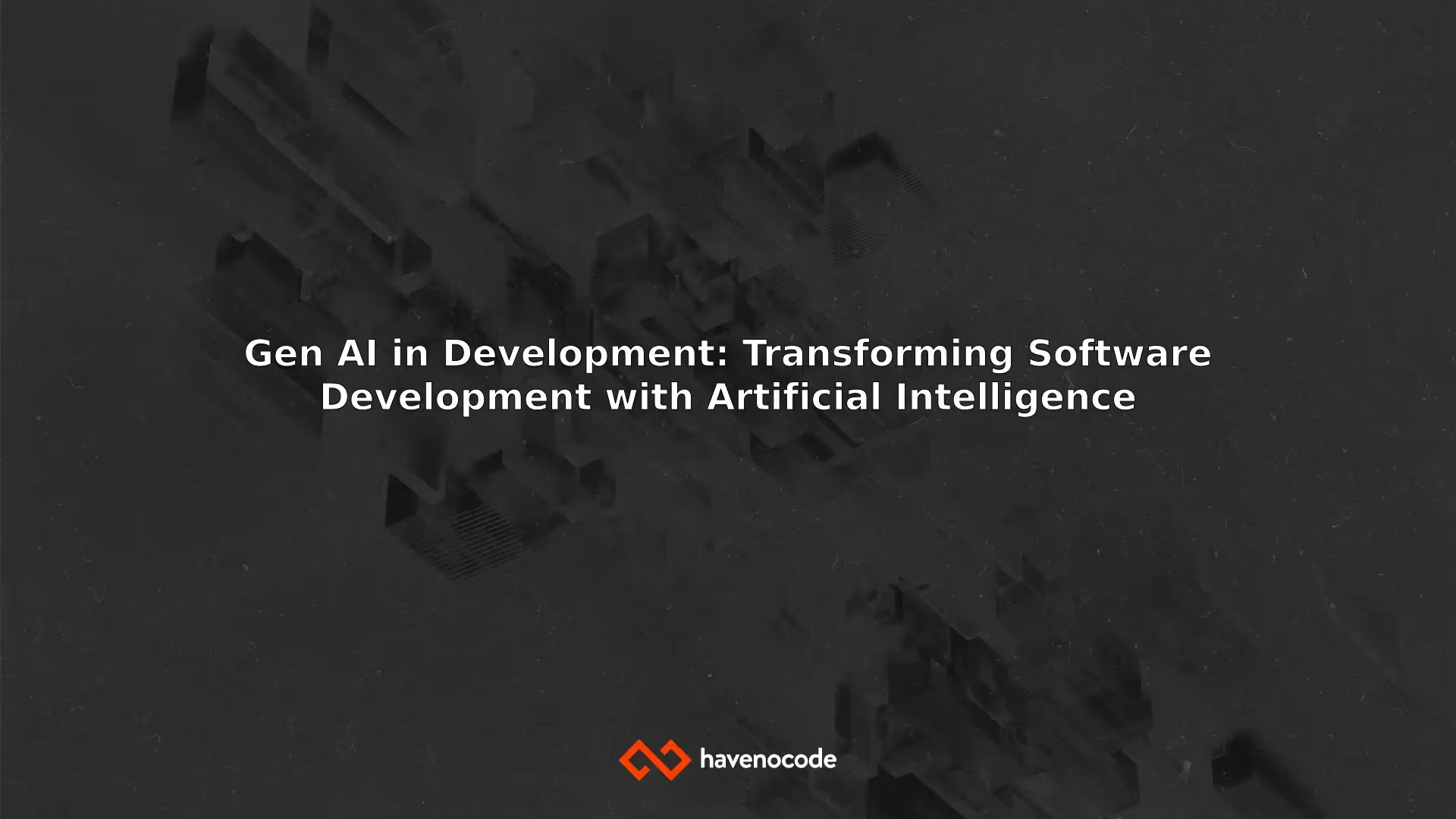Mobile Development - What is it and What to Know?
Could the world function today without mobile apps and devices? It's hard to imagine, especially observing the ever-increasing demand for their use in both business and daily life. Why is this happening? What makes mobile technologies increasingly popular and how to harness them?
In this article, we'll delve into the process of Mobile Development, understanding its key concepts, challenges, trends, and innovative technologies like no-code that influence the dynamic growth of this field.
Mobile App Development - Definition
Let's begin by answering the most pivotal question - What is Mobile App Development? Mobile App Development encompasses the creation of applications for mobile devices, such as smartphones and tablets. These products can be developed across various platforms, with the most popular being iOS and Android. Applications made for specific platforms are referred to as native applications.
A hallmark of this field is the relentless pursuit of innovation, adapting to shifting trends, and continuous process enhancement. Thus, it's essential to continually delve into this area, stay abreast of the latest technologies and trends, and experiment with new tools to produce apps that meet expectations and outperform competitors.
Key Concepts in Mobile Development Process
Despite its diversity and complexity, Mobile Development hinges on several core concepts that are vital to grasp its full functionalities.
User Interface Design (UX/UI)
Crafting an appealing and intuitive user interface is fundamental in Mobile Development. A well-designed UI ensures that users navigate the app swiftly and effortlessly utilize its functions. Efforts in this realm cover aspects like design, layout, navigation, notifications, and many other elements that shape the user experience.
Mobile App Development Platforms
Mobile application development isn't just about designing visually appealing apps but also involves writing code that brings the app to life. The front-end, what users see, requires understanding programming languages like Swift for iOS (native apps), Kotlin for Android, or React Native to build apps. The back-end, on the other hand, manages databases and server interactions. It's worth mentioning Flutter, a popular tool among developer teams delivering apps for both Android and iOS (cross-platform app).
Databases
Mobile apps often need to store and manage data, such as user profiles, transaction histories or personalization settings. Hence, choosing the right database and its effective integration is crucial to build apps.
Mobile App Security
As already pointed out, since mobile apps frequently contain users' and clients' sensitive information, like personal data and financial details, security becomes a paramount concern. Data and app protection against attacks is a priority in Mobile Development. Especially now, as technology evolves rapidly and the threat of attacks persistently rises. Digital products should not only implement apt safeguards but continuously monitor and adapt them to new challenges.
No-Code in Mobile App Development - Benefits
No-code is an innovative approach that has revolutionized the mobile app creation process, allowing individuals without deep programming knowledge to design and create their digital products. This approach significantly reduces the time needed to develop applications and lowers the barriers for those previously inexperienced in coding.
What is no-code?
It's an approach to app development that relies on using tools and platforms that don't require coding from scratch. Instead, no-code offers pre-built components and tools for crafting user interfaces, managing data, and formulating business logic. This means individuals from diverse fields, not necessarily tied to programming, can develop their own apps using no-code.
Advantages of no-code in app development process:
- Speed: No-code app creation is much faster than traditional programming.
- Low Entry Threshold: No need to learn intricate programming languages.
- Accessibility: No-code tools cater to a broad audience.
- Flexibility: Ability to tailor apps to specific needs.
Read more about no-code:
Everything you need to know about no code
No-code isn't merely a tool for novices but also for professionals seeking to expedite prototype creation or to test new ideas. Many no-code tools, like Bubble, Xano, and Webflow, offer varying levels of sophistication and capabilities. Consequently, numerous tech companies on the market now provide professional no-code app creation services.
Is No-Code the Future of Mobile Development?
No-code holds the potential to significantly shape the future of Mobile Development, enabling even greater innovation and flexibility in mobile app creation. While the technology continuously evolves, many apps have already achieved global success thanks, in part, to their use of no-code. This includes apps conceived from scratch and those where no-code assisted in their later development phases.
Create Your Mobile App
Looking to build or enhance your mobile app? You're in the right place! At havenocode, we assist companies worldwide by building and evolving apps using no-code/low-code technology. So fill out the form, share details about your project, and let us show you how we can speed up its realization with no-code! Our experienced team of developers constructs and grows both web platforms and mobile apps.
Mobile App Creation - Challenges
When developing mobile apps, whether using traditional programming or no-code, several pivotal issues and challenges must be addressed.
Compatibility Across Various Platforms (iOS, Android)
The mobile market is split between two main platforms: iOS from Apple and Android from Google. When crafting an app, you have to decide which platforms you want it available on and tailor it to diverse operating systems, interfaces, and guidelines. This demands proper planning and often involves creating two separate app versions.
Updates and Mobile App Maintenance
App creation is just the beginning. Updates are an intrinsic part of an app's lifecycle. Adapting the app to new OS versions, rectifying errors, and adding new features is an ongoing task.
Testing and Debugging Mobile Apps
Before launching an app, intensive testing is essential to ensure it functions correctly across various devices and scenarios. Problem-solving and debugging are inherent parts of the Mobile Development process.
App Performance Optimization
Mobile users expect apps to be smooth and responsive. Performance optimization is pivotal to ensure an app operates efficiently without over-consuming device resources.
Mobile Development Trends
Mobile Development is a field that continually evolves with the advancement of mobile technologies. Therefore, it's crucial to keep track of the latest trends shaping the future of this industry. Here are some significant trends influencing Mobile Development:
Augmented Reality (AR) and Virtual Reality (VR) Apps
AR and VR are becoming increasingly popular, with apps utilizing these technologies offering unique opportunities for both users and businesses. Developing applications that leverage these technologies is a current hotbed of innovation.
Internet of Things (IoT) in the Context of Mobile Development
IoT devices, like smart homes or wearables, require mobile applications for management. Mobile Development plays a vital role in creating interfaces for these devices and integrating them with other mobile apps.
Trends in Mobile App Design
App design is becoming more innovative and user-centric. Minimalist interfaces, fluid animations, and personalization are just some of the directions shaping modern apps.
Tracking these trends is essential for mobile app developers and designers as it enables the creation of competitive apps tailored to modern user expectations. However, it's essential to remember that these trends can vary depending on the region and industry, so it's always worthwhile to research the market and adapt your strategy to the specific situation.
Mobile App Development - summary
In conclusion, Mobile Development is not just about creating applications but continually adapting to the evolving needs of users and challenges posed by ever-more advanced technologies. As phones and tablets become increasingly integral to our lives, Mobile Development plays a pivotal role in granting access to new features, entertainment, information, and services.
Mobile Development also presents a unique opportunity for businesses. Leveraging advanced mobile technologies allows them to craft innovative tools that revolutionize our ways of living and working.
.avif)
-min.avif)




%2520(1).avif)
%2520(1).avif)
%2520(1).avif)












